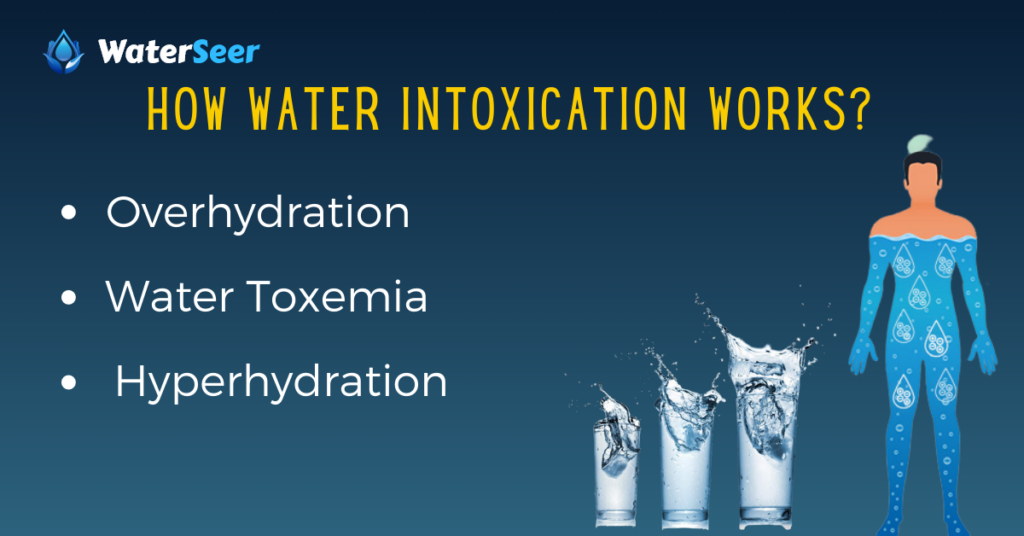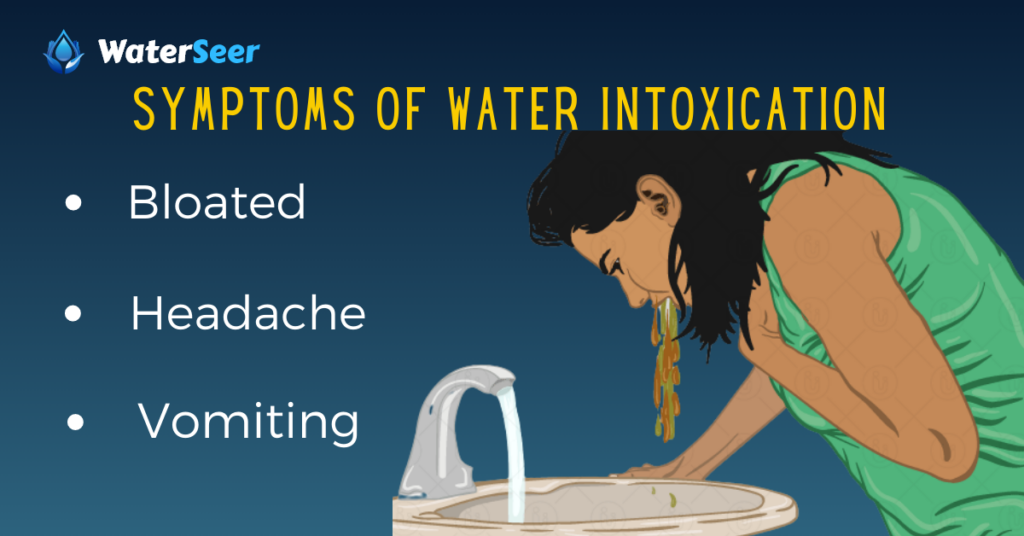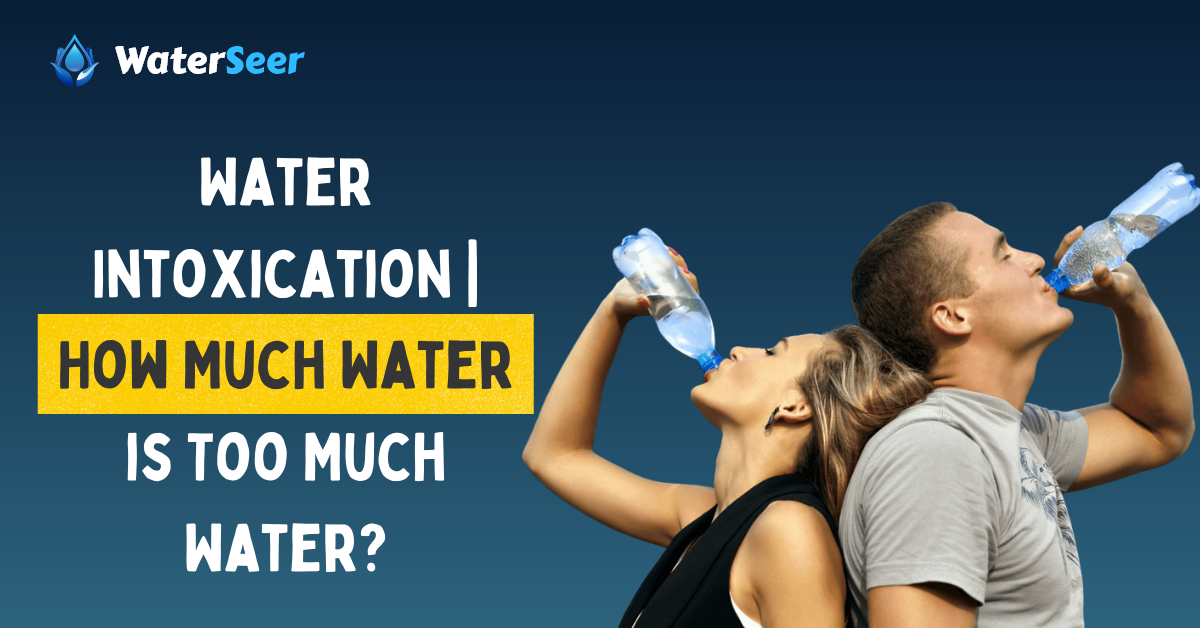Water is the source of all life forms in the world. It is generally accepted that where there is water, there is life. But where there is too much water, there might be an absence of life. Water is that tasteless, odorless liquid that we all need to live, but did you know that it is possible that someone can die by drinking too much water?
Not just that, but water intoxication is a condition that can cause a host of symptoms, and all of this happens by drinking more water than what’s needed. But there are a lot of details that we will explain about water intoxication, along with the misconceptions and prevention methods. Let’s find out, how much water is too much water?
How Water Intoxication Works?

There is a medical term (a few) for the condition of drinking too much water. It is called Overhydration, Water Toxemia, Hyperhydration, and the more common, water poisoning. If you think about how water can poison something, you’ll be shocked to know that too much water can kill you. But how does this benign fluid become the bane of life?
Everything inside our bodies works in a delicate balance. The amount of hormones, enzymes, salts, minerals, and even the range of temperature has to be at a specific value for us to function properly. The lack of water in our bodies is a more common issue than the abundance of it, but water also needs to be present in a specific amount.
The reason why water intoxication happens is because of osmosis. Water is transported by blood, which is also in contact with the cells. When there is a lot of water in the blood, this is when the intoxication begins. Due to osmosis, the salts in the cells move outside, and the water in the blood moves inside the cells. This causes a drop in sodium, and the cells swell up. This is how the intoxication happens. It gets more dangerous when the brain cells start to swell up, which is fatal.
Apart from cells swelling up, sodium reduction prevents many crucial processes, including blood pressure. So now we know why water poisoning happens. The next and most crucial question is how much water can cause this poisoning? This is where we’ll address one of the biggest misconceptions about water intoxication.
How Much Water is Dangerous?
How much water is dangerous is a very tricky question. The water balance in your body is maintained by the kidneys. And kidneys are very efficient at filtering and removing the excess water. You drink more water, you urinate more often. You drink less water, you urinate less water. But just like any other organ, the kidneys have a limit. A normal adult kidney can filter out anywhere between 5 to 7 gallons of water a day (20-28 liters). So technically speaking, you can drink this amount of water and still be safe.
It is not about how much water you drink as much as how much water you drink in an hour. Excess water will be filtered out from the body, the only inconvenience being frequent trips to the bathroom. But when you consume more water in an hour than what your kidneys can filter out, then the water intoxication starts. Drinking more water in an hour or in a particular period than what your kidneys can filter out is the reason for water intoxication and not the amount of water consumed.
Also Read:- How Much Water Should You Drink Per Day to Stay Hydrated?
Causes of Water Intoxication
While it is very rare for someone to experience water intoxication since once you drink some excess amount of water, you really can’t fit in anymore. But most cases of water intoxication occur during an excessive workout or after strenuous and sweaty activity.
After a long workout period, you have already lost a lot of salt through sweating. This depletion in salt is further aggravated when you drink a lot of water right after the exercise. This is more common as you are parched after the exercise and are more likely to consume more water than you actually can handle.
This sudden increase in water content and decrease in salt content (which is made even worse when more water is added) causes a severe drop in the blood pressure, along with the swelling of the cells and even water leaking into the blood, thinning it. This is why it is advised to drink water that has added salts in it after a strenuous workout and drink water in small amounts. There have been a few cases of death of some athletes due to this condition.
There are some mental conditions when people tend to drink more water than what’s needed. Another reason for water intoxication is the usage of MDMA, a common drug used while partying. MDMA increases blood pressure and urine retention. This, along with the general exhaustion, can cause higher water intake than normal, possibly causing water intoxication.
Symptoms of Water Intoxication

Some general and common symptoms occur during the initial stages of water intoxication. When the intensity increases, the symptoms also change. Here are all common and severe symptoms of water intoxication.
Common
- Bloated
- Headache
- Vomiting
- Nausea
- General discomfort
Severe
- Confusion
- Double vision
- Drowsiness
- Numbness
- Difficulty in understanding sensory information
- Breathing difficulties
- Muscle cramping
- Increased blood pressure
How to Avoid Water Intoxication?
Here’s the very difficult yet the simplest part about water intoxication. Preventing it is very easy. Just don’t drink more water than the right amount for your age, activity, body size, gender, and a few other factors. But here’s the difficult part. Getting to calculate the right amount of water to be taken is very difficult and personal.
There are no CDC guidelines about the right amount of water for anyone. Usually, anywhere between 2.5 liters to 3.5 liters of water a day is considered to be the normal intake, but it depends on your activity, environmental conditions, etc. Some people need more water, while some are okay with a little. So what’s the best way to avoid water intoxication?
There’s no right amount of water that you must drink every day to stay healthy. Do not stick to strict routines of drinking some arbitrary amount of water every day. The best way is to drink whenever you feel thirsty. Remember that we said thirsty, and not when your mouth feels dry. One more thing, never drink more than one liter of water in less than an hour. And if you find yourself urinating a lot more frequently than usual, then it is time for you to reduce your water intake.

